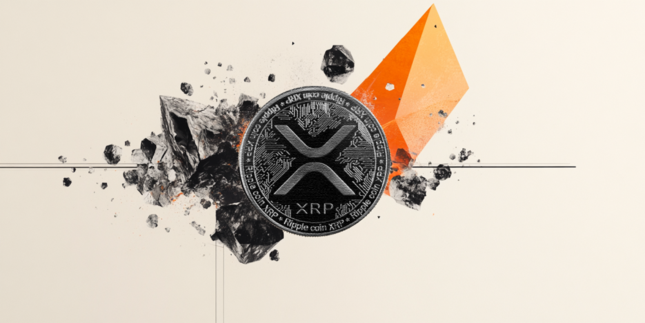The director of the Financial Crimes Enforcement Network (FinCEN) says the cryptocurrency industry has begun to fall in line with the agency’s regulations on money transmission services.
In a speech delivered at the American Bankers Association/American Bar Association Financial Crimes Enforcement Conference on Dec. 10, Kenneth A. Blanco claimed that FinCEN’s May 2019 guidance was having a marked and positive impact on its oversight of the crypto space.
Crypto reporting has significantly increased since May
In May, FinCEN published guidance for crypto businesses that clarified how its regulations relating to money services businesses (MSBs) apply to certain business models in the crypto industry and carry specific obligations under the United States Bank Secrecy Act.
In his remarks, Blanco noted that since its publication, the agency has seen a significant increase in Suspicious Activity Reports (SAR): a total of 11,000, of which roughly two thirds (7,100) are from crypto businesses, including kiosks, exchanges, and peer-to-peer exchangers.
Ahead of May, he noted, filings from entities in the crypto space had accounted for markedly less — around half of the SARs the agency received.
Moreover, he observed that crypto businesses are increasingly internalizing the agency’s key advisory terms and using them in their filings directly. He said he considers this to be an encouraging trend and a sign that the industry is making use of FinCEN’s “red flags” and duly reporting suspicious activity.
New scams target crypto newbies and the elderly
As regards the content of the reports, Blanco said that the agency has observed an increase in filings from exchanges that identify possibly unregistered, overseas MSBs — specifically, Venezuela-based peer-to-peer exchangers.
There has also been an increase in reporting of customers conducting crypto transactions with wallets linked to darknet marketplaces, as well as on activity that appears characteristic of scam victims — particularly novice crypto users, including the elderly.
Blanco closed his remarks with an appeal to businesses that are yet to abide by the agency’s guidance:
‘I think it is important for all financial institutions to ask themselves whether they are reporting such suspicious activity. If the answer is no, they need to reevaluate whether their institutions are exposed to cryptocurrency.”
Blanco’s speech confirms a persistent trend he had noted during a speech this August, when he revealed FinCEN was seeing a surge in SARs, with filings at the time exceeding 1,500 per month.
That same month, he directly appealed to casinos dealing crypto payments to consider how they will conduct due diligence and comply with their reporting obligations.
This fall, the U.S. House of Representatives passed a bill requiring the Director of FinCEN to conduct a study on the use of emerging technologies, including blockchain, within the agency.
Information on these pages contains forward-looking statements that involve risks and uncertainties. Markets and instruments profiled on this page are for informational purposes only and should not in any way come across as a recommendation to buy or sell in these assets. You should do your own thorough research before making any investment decisions. FXStreet does not in any way guarantee that this information is free from mistakes, errors, or material misstatements. It also does not guarantee that this information is of a timely nature. Investing in Open Markets involves a great deal of risk, including the loss of all or a portion of your investment, as well as emotional distress. All risks, losses and costs associated with investing, including total loss of principal, are your responsibility. The views and opinions expressed in this article are those of the authors and do not necessarily reflect the official policy or position of FXStreet nor its advertisers.
Recommended Content
Editors’ Picks

XRP chart signals 27% jump after SEC-Ripple appeals pause and $50 million settlement
Ripple (XRP) stabilized above $2.00 exemplifying a similar pattern to the largest cryptocurrency by market capitalization, Bitcoin (BTC), which holds firmly above $84,000 at the time of writing on Thursday.

Bitwise lists four crypto ETPs on London Stock Exchange
Bitwise announced on Wednesday that it had listed four of its Germany-issued crypto Exchange-Traded products (ETPs) on the London Stock Exchange. It aims to expand access to its products for Bitcoin (BTC) and Ethereum (ETH) investors and widen its footprint across European markets.

RAY sees double-digit gains as Raydium unveils new Pumpfun competitor
RAY surged 10% on Wednesday as Raydium revealed its new meme coin launchpad, LaunchLab, a potential competitor to Pump.fun — which also recently unveiled its decentralized exchange (DEX) PumpSwap.

Ethereum Price Forecast: ETH face value- accrual risks due to data availability roadmap
Ethereum (ETH) declined 1%, trading just below $1,600 in the early Asian session on Thursday, as Binance Research's latest report suggests that the data availability roadmap has been hampering its value accrual.

Bitcoin Weekly Forecast: Market uncertainty lingers, Trump’s 90-day tariff pause sparks modest recovery
Bitcoin (BTC) price extends recovery to around $82,500 on Friday after dumping to a new year-to-date low of $74,508 to start the week. Market uncertainty remains high, leading to a massive shakeout, with total liquidations hitting $2.18 billion across crypto markets.

The Best brokers to trade EUR/USD
SPONSORED Discover the top brokers for trading EUR/USD in 2025. Our list features brokers with competitive spreads, fast execution, and powerful platforms. Whether you're a beginner or an expert, find the right partner to navigate the dynamic Forex market.